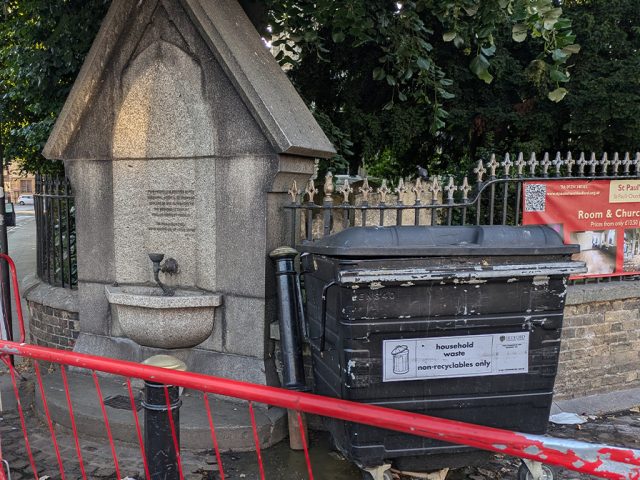Discover how Luton’s community adapts to road closures and infrastructure upgrades, turning short-term disruption into long-term sustainability and resilience. Learn more now!
In recent times, the discussion surrounding the availability and restoration of public water fountains has garnered significant attention. A letter penned by Mr. Jamil Ahmed excellently elucidates the myriad benefits of restoring these much-needed public amenities. The positive impact of accessible drinking water fountains extends well beyond the immediate advantage of hydration—it encompasses crucial environmental benefits as well.
Eloquently Stated Concerns
Mr. Ahmed's letter, which we echoed in our recent publication, addresses the stark scarcity of free drinking water facilities in our county town and its neighboring areas. He articulates, with compelling clarity, the pressing need to reclaim and restore these public facilities for the benefit of both residents and visitors alike.
Environmental and Health Benefits

The reinstatement of public water fountains carries twofold significance: providing life-sustaining water to all, and fostering a healthier environment by curbing reliance on single-use plastic bottles. Access to free water stations can substantially diminish the consumption of bottled water, helping reduce plastic waste and its detrimental effects on our planet.
However, it is understandable that certain commercial enterprises, particularly those vested in the sale of bottled water, might resist such initiatives. Nevertheless, as Mr. Ahmed aptly emphasises, the ecological wellbeing of our home world unequivocally outweighs corporate profits.
Political Advantage and Public Good
Restoring public water fountains is not merely an environmental necessity but also a politically advantageous move. By revitalising these facilities, local authorities can make a strong statement about their commitment to public health and environmental stewardship. This proactive stance can foster goodwill among constituents and enhance the image of the governing bodies as forward-thinking and community-focused.
I join Mr. Ahmed in urging our local authorities to seize this opportunity wholeheartedly. Enhancing our town's water accessibility facilities would bring substantial benefits and reflect positively on those in leadership positions.
Council Response
In light of the public's growing concerns, the Bedford Independent reached out to the Bedford Borough Council for their official stance on the matter. A spokesperson responded:
“While we have no current plans for refurbishment or new sites, we continue to promote and highlight the refill water drinking stations. These stations will be available across the River Festival event this weekend, allowing residents and visitors to refill their containers with clean, fresh water."
"Bedford Borough Council has also signed up as Refill Stations, contributing to Refill Bedford’s network of locations where people can fill up their reusable water bottles for free. 'Refill' is a nationwide campaign connecting people with thousands of local businesses, community venues, transport hubs, and public fountains offering free refill facilities.”
The response indicates a progressive step towards addressing the water accessibility issue even if it falls short of a comprehensive solution involving the restoration of traditional water fountains.